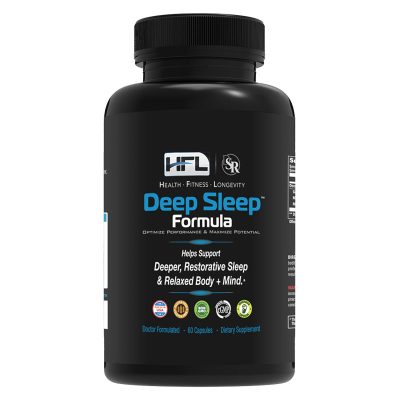Table of Contents
ToggleWhat Exactly Is Brain Fog?
Brain fog is not some mythical creature concocted by hypochondriacs seeking attention. No, it is an authentic and tangible experience that can leave even the sharpest minds feeling dull and sluggish.
Your mind feels clouded, your thoughts are scattered like marbles on a hardwood floor, and concentration becomes an elusive unicorn that refuses to be tamed.
Don’t get me wrong; we all have our off days where our cognitive abilities may not be firing on all cylinders. But brain fog takes things to a whole new level.
So why am I ranting about brain fog? Well, my friends, it turns out that one notorious culprit behind this cognitive cloudiness is none other than Wellbutrin – that little pill prescribed for depression and smoking cessation purposes.
In the upcoming sections of this article, I shall guide you through the treacherous fog-laden landscape of Wellbutrin-related brain fog.
We shall explore the symptoms, discuss potential treatment options (and yes, I may even delve into the world of supplements, nootropics, and probiotics), and shed light on other delightful side effects that may greet you on your journey with this medication.

What is Wellbutrin?
Wellbutrin is a medication that has been hailed as a miracle drug for those battling depression and even addiction. Marketed under the generic name bupropion, it belongs to the class of antidepressants known as norepinephrine-dopamine reuptake inhibitors (NDRI).
Wellbutrin works by altering the levels of neurotransmitters in your brain, namely norepinephrine, and dopamine. It inhibits their reuptake, allowing these chemicals to linger longer in your synapses and exert their mood-enhancing effects.
While it may sound promising on paper, Wellbutrin has become notorious for its potential side effects.
One of these side effects that plague many unfortunate souls is what we call “brain fog.” This foggy state of mind can manifest as forgetfulness, difficulty concentrating or finding words, and even confusion.
Is there an alternative that can provide both relief from depression and a boost to our cognitive faculties? Absolutely! I’m excited to delve deeper into this topic and present you with a range of promising solutions.
While embracing the potential of nootropics and supplements, it’s important to remember that they can play a valuable role alongside other approaches.

Can Wellbutrin cause brain fog?
The answer, my friends, is a resounding yes. Now, don’t get me wrong; Wellbutrin is hailed as a wonder drug for many individuals struggling with depression and smoking cessation.
But like any medication, it comes with its fair share of side effects.
And one particularly pesky side effect that rears its foggy head all too often is none other than the infamous brain fog.
Several studies have shown that cognitive impairment is indeed a potential side effect of Wellbutrin treatment. And while not everyone may experience it to the same extent or even at all (lucky devils!), there’s no denying that this nebulous cloud can be quite disruptive for those unlucky enough to be caught in its grasp.

Wellbutrin Brain Fog Cure Options
When it comes to managing the insidious brain fog induced by Wellbutrin, the options may seem limited, but fret not dear readers, for I have tirelessly compiled a list of potential remedies that might just clear the haze and restore your cognitive clarity.
These suggestions are not foolproof solutions, mind you, but they are worth exploring in your quest to conquer this maddening mental fog.
Hydration:
- Water is essential for our bodies and brains.
- Dehydration can worsen brain fog.
- Drink sufficient water throughout the day.
- Aim for at least eight glasses daily.
Nutrition:
- Nutrient-rich foods are crucial for combating brain fog.
- Include fruits, vegetables, lean proteins, whole grains, and healthy fats.
- Foods like blueberries and dark chocolate offer cognitive benefits.
Supplements for Brain Fog:
- Probiotics support gut health, linked to improved cognitive function.
- Incorporate probiotic-rich foods or consider supplements.
- Nootropics can enhance cognitive abilities like memory and concentration.
- Examples include caffeine, ginseng, and Ginkgo Biloba.

Drinking Plenty of Water
It’s astonishing how many people neglect this basic necessity and then wonder why their brains feel like they’re trapped in a perpetual fog.
When we don’t drink enough water, our bodies become dehydrated, and this dehydration affects every aspect of our well-being, including our cognitive function.
Our brains are made up of about 75% water, and without adequate hydration, they simply cannot perform at their peak capacity. Dehydration can lead to fatigue, poor concentration, memory lapses, and yes, even brain fog.
And please, for the love of all that is logical and sensible in this world, prioritize good old H2O over sugary drinks or caffeinated beverages that will only further dehydrate you.
By nourishing your body with probiotics while hydrating it at the same time (gasp!), you’re giving your brain the best chance to clear away that hazy fog and regain its sharpness.
And hey, if you’re feeling adventurous, throw in some nootropics or brain-boosting supplements in the mix—just be sure to do thorough research and consult with a healthcare professional before diving into the world of cognitive enhancement.
So go ahead, drink up! Your brain will thank you for lifting that mental fog and allowing you to navigate through life with clarity and brilliance.
Eating a Healthy Diet
The food we consume has a direct impact on our cognitive function, and when our brains are already struggling to stay alert and focused, the last thing we need is to burden them with a barrage of unhealthy junk.
Be on the lookout for fresh fruits and vegetables bursting with vibrant colors and essential vitamins. These powerhouses of nutrition are packed with antioxidants that protect your brain from oxidative stress, keeping it sharp as a tack.
Protein provides amino acids that serve as building blocks for neurotransmitters in your brain. These neurotransmitters are responsible for transmitting information between nerve cells, so ensuring an adequate protein intake will keep those lines of communication clear and efficient.
Don’t forget about healthy fats either! Avocados, nuts (especially walnuts), and fatty fish such as salmon are all excellent sources of omega-3 fatty acids – the superheroes of brain health.
Opt for whole grains like quinoa or brown rice that provide slow-releasing energy throughout the day without causing blood sugar spikes.
To truly supercharge your brain, consider incorporating some brain-boosting supplements into your diet. Nootropics such as ginkgo biloba or bacopa monnieri have been shown to enhance cognitive function and memory.
Probiotics can work wonders for your gut health, which is inextricably linked to brain health. A healthy gut means a healthy mind, so load up on fermented foods like sauerkraut or kimchi or consider taking a high-quality probiotic supplement.

Exercising Regularly
Regular exercise increases blood flow to the brain. When you engage in physical activity, your heart pumps faster, delivering fresh oxygenated blood directly to your gray matter. This influx of nourishment helps combat that pesky brain fog caused by Wellbutrin or any other medication.
Consider incorporating supplements into your routine that enhance cognitive function. Nootropics such as Alpha-GPC or Bacopa Monnieri have shown promising results in combating brain fog and enhancing mental clarity.
These powerful little helpers can give your brain an extra boost, helping you stay sharp and focused even amid a Wellbutrin-induced haze.
Getting Enough Sleep
Let me make this crystal clear: if you’re not giving your body and mind sufficient rest, you’re setting yourself up for failure.
Sleep deprivation wreaks havoc on your brain, leaving it groggy, sluggish, and unable to perform at its full potential.
- Aim for 7-9 hours of shut-eye each night to allow your brain time to rejuvenate and repair itself.
- Establish a consistent sleep schedule. Our bodies thrive on routine, so try to go to bed and wake up simultaneously every day.
- Create an environment conducive to relaxation – invest in comfortable bedding and pillows, keep your bedroom cool and dark, and consider using white noise or soothing music if necessary.
Reducing Stress
Stress not only exacerbates foggy-headedness, but it can also hinder the effectiveness of any treatment you undertake.
Engage in activities that promote relaxation and help you unwind. Whether it’s practicing mindfulness meditation, indulging in a soothing bath with lavender essential oils, or simply finding solace in a good book or movie, make time for yourself.
Incorporating stress management techniques into your daily routine can work wonders for battling brain fog.
Explore different methods such as yoga or Tai Chi that focus on combining movement with mindfulness. These practices not only help alleviate stress but also enhance cognitive function and promote clarity of thought.
Other Options to Fight Mental Fog
One avenue worth exploring is the world of nootropics. These brain-boosting substances have gained popularity in recent years and are believed to enhance cognitive function.
While research on their efficacy is still limited, users swear by their ability to combat mental fog.
Substances such as piracetam or modafinil have shown promise in boosting focus and concentration, making them potential allies in your battle against Wellbutrin-induced brain fog.
Nootropics may interact with other medications or have side effects of their own while choosing an appropriate probiotic strain requires knowledge of individual needs and conditions.

Limiting Refined Carbohydrates Intake
Let’s face it: refined carbs, like white bread, sugary treats, and processed snacks, offer little to no nutritional value. They are nothing more than a quick fix for our taste buds, leaving us feeling sluggish and drained shortly after consumption.
Refined carbs cause spikes in blood sugar levels, leading to an energy rollercoaster that can leave you feeling mentally foggy and fatigued.
By limiting your intake of these empty calories and opting for whole grains instead, you can stabilize your blood sugar levels and provide your brain with the sustained energy it needs to function optimally.
Focus on consuming complex carbohydrates such as quinoa, brown rice, sweet potatoes, and legumes. These foods provide a steady supply of glucose to the brain without causing rapid blood sugar fluctuations.
Avoiding Foods That Trigger Inflammation
By eliminating these inflammatory foods from our plates, we can pave the way for mental clarity and heightened cognitive function.
Trans Fats not only wreak havoc on our cardiovascular health but also contribute to chronic inflammation in our bodies. Steer clear of those deep-fried delights and greasy fast-food meals that tantalize your taste buds but leave you feeling mentally sluggish.
Refined Carbohydrates cause a rapid spike in blood sugar levels, leading to increased insulin production and subsequent inflammation throughout the body. Swap out those processed carbohydrates for whole grains like quinoa or brown rice, which provide a steady release of energy without triggering an inflammatory response.
Artificial additives and preservatives, those colorful boxes of processed snacks may promise convenience, but they come packed with chemicals that have no place in a well-functioning mind.
Be vigilant and read labels religiously; avoid ingredients such as monosodium glutamate (MSG), high-fructose corn syrup (HFCS), and artificial sweeteners like aspartame or sucralose.
Taking Brain-Boosting Supplements
While some may dismiss the idea as quackery or mere snake oil, I implore you to keep an open mind and consider the scientific evidence that supports the use of certain supplements to enhance cognitive function.
One such supplement is omega-3 fatty acids. These essential fats are abundant in fish oil and have been shown to improve brain health by reducing inflammation and promoting optimal neurotransmitter function.
Another supplement worth exploring is Bacopa monnieri, an herb with a long history in traditional medicine for its cognitive-enhancing properties. This potent botanical has been shown to improve memory, attention span, and overall cognitive performance.
They can help assess your unique situation and ensure compatibility with any other medications or conditions you may have.
Omega-3 fatty acids and Bacopa monnieri are just two examples amidst a sea of options available on the market today. So don’t simply resign yourself to living in a perpetual haze; take charge of your cognitive well-being and seek out the supplements that may provide the mental clarity you so desperately desire.

Supporting Methylation
Methylation is a biochemical process in the body that plays a vital role in the production and regulation of neurotransmitters. When methylation processes are impaired, it can lead to a host of mental health issues, including brain fog.
One way to support methylation is through supplementation. Specifically, methylated forms of vitamins such as B6, B12, and folate can be incredibly beneficial.
These vitamins help enhance the body’s ability to convert homocysteine into methionine, which is essential for proper neurotransmitter synthesis.
Considering Intermittent Fasting
Intermittent fasting involves cycling between periods of eating and periods of abstaining from food.
The idea behind it is to give your body’s digestive system a break and allow it to reset itself. Advocates of intermittent fasting suggest that this practice can enhance mental clarity, improve focus, and even boost cognitive function.
It’s important to remember that not all bodies respond the same way to different dietary approaches. What works for one person may not work for another.
It’s crucial to consult with your healthcare provider before embarking on any drastic changes to your eating habits or medication regimen. They will be able to provide personalized advice based on your specific needs and overall health status.
Other Wellbutrin Side Effects
Ah, the side effects of Wellbutrin. We can’t discuss brain fog without diving into the murky depths of other unfortunate consequences that this medication might bring upon its users.
Now, don’t get me wrong, I’m not here to discourage anyone from seeking treatment for their mental health concerns. But it’s only fair to shed some light on what else you might be signing up for when you decide to give Wellbutrin a whirl.

Anxiety Amplification
Wellbutrin’s tendency to crank up the anxiety dial can be downright infuriating.
Now, let’s be clear here: I am not suggesting that everyone who takes Wellbutrin will experience heightened anxiety. However, there is no denying that this side effect is all too common for many individuals.
Some can actually help soothe anxiety and promote a sense of calm, without interfering with the efficacy of your medication.
Look for supplements like L-theanine or ashwagandha, known for their stress-reducing properties and ability to support a more balanced mood.
Now remember my dear reader, these suggestions are not meant to replace professional medical advice but rather to serve as food for thought and potential areas worth exploring in collaboration with your healthcare provider.
Unpredictable Energy Surges
On one hand, having an increase in energy levels can be quite invigorating, especially for individuals struggling with depression or fatigue.
However, the flip side of this newfound burst of energy can lead to restlessness, irritability, and even reckless behavior.
These sudden bursts of energy can make it incredibly difficult to find a sense of balance in our lives.
Rapid Heart Rate
It’s bad enough that we have to deal with brain fog and mental haze, but now our hearts are racing too?
Now, I’m no doctor, but I can’t help but wonder if there are ways to counteract this unfortunate side effect. Maybe there are certain nootropics or supplements out there that can help regulate our heart rates while on Wellbutrin?
It’s frustrating enough dealing with brain fog and mental haziness caused by Wellbutrin. But when our hearts start racing like Usain Bolt on steroids, things get even more concerning.
Sleep Disturbances
One of the most frustrating and debilitating side effects of Wellbutrin is the disruption it causes to our sleep patterns.
The problem with Wellbutrin-induced insomnia is that it not only affects our ability to fall asleep, but it also disrupts the quality and duration of our sleep.
We find ourselves waking up multiple times throughout the night, feeling groggy and fatigued when morning finally arrives. This lack of quality sleep not only leaves us feeling irritable and unproductive during the day but can also exacerbate other symptoms such as brain fog and difficulty concentrating.

Seizure Concerns
Seizures are sudden, uncontrollable bursts of electrical activity in the brain that can result in convulsions, loss of consciousness, and even injury.
It is a frightening experience for both the person experiencing it and anyone who witnesses it. And to think that this could be a consequence of taking a medication meant to help with mental health issues is simply mind-boggling.
Now, I’m not here to scare you away from Wellbutrin altogether. For some individuals, this medication has been a real lifesaver in managing conditions like depression or anxiety.
But what I do want to emphasize is the importance of being vigilant and informed about the potential risks involved.
Appetite Suppression
Now, let’s talk about one of the most frustrating side effects of Wellbutrin: the loss of appetite.
You find yourself pushing away plates at mealtime, staring at food with little to no interest, and wondering how on earth you can keep your body fueled when it feels like your appetite has gone on an extended vacation.
This phenomenon leads to a disheartening experience where mealtimes become a constant challenge. The absence of hunger becomes a daily struggle, urging you to seek creative ways to nourish yourself and maintain your well-being despite the persistent lack of appetite’s presence.
Conclusion
Managing Wellbutrin-related brain fog can be a frustrating and challenging experience. However, armed with the right knowledge and strategies, it is possible to clear the haze and regain mental clarity. By implementing lifestyle changes such as staying hydrated, eating a nutritious diet, exercising regularly, getting enough sleep, and reducing stress levels, individuals can significantly reduce the impact of brain fog caused by Wellbutrin.












